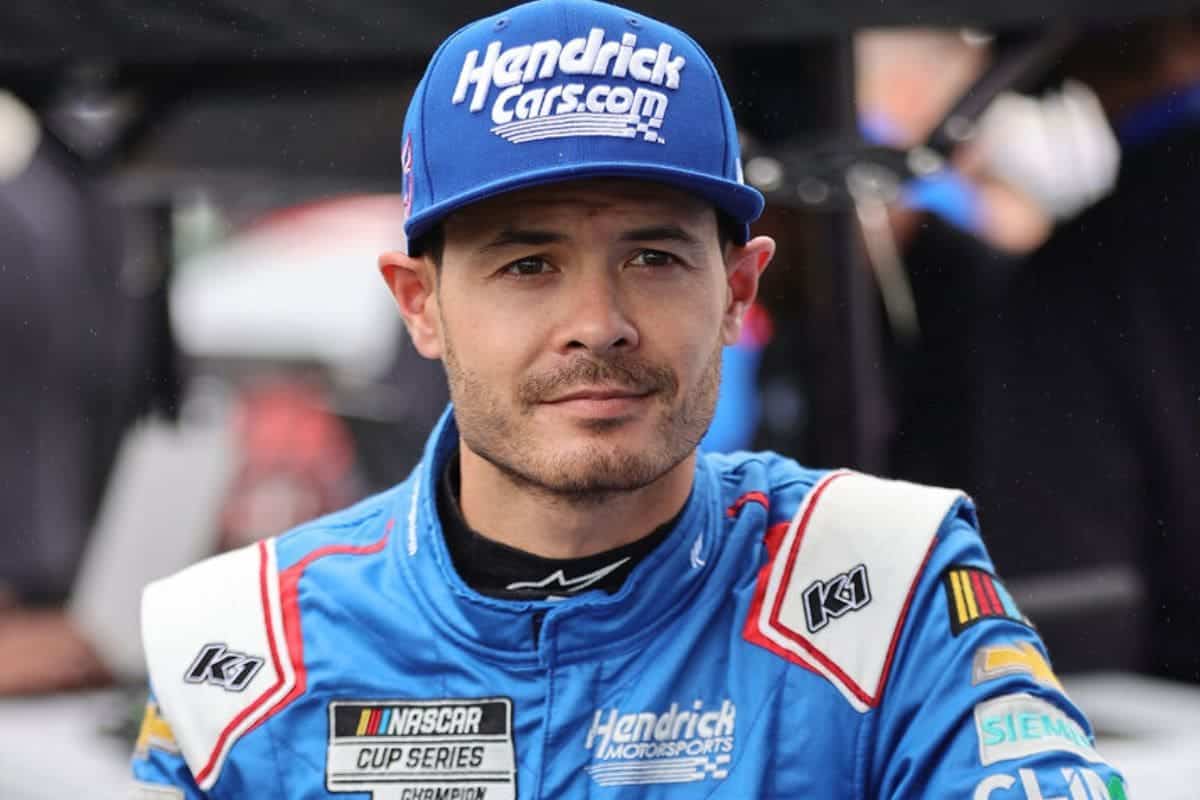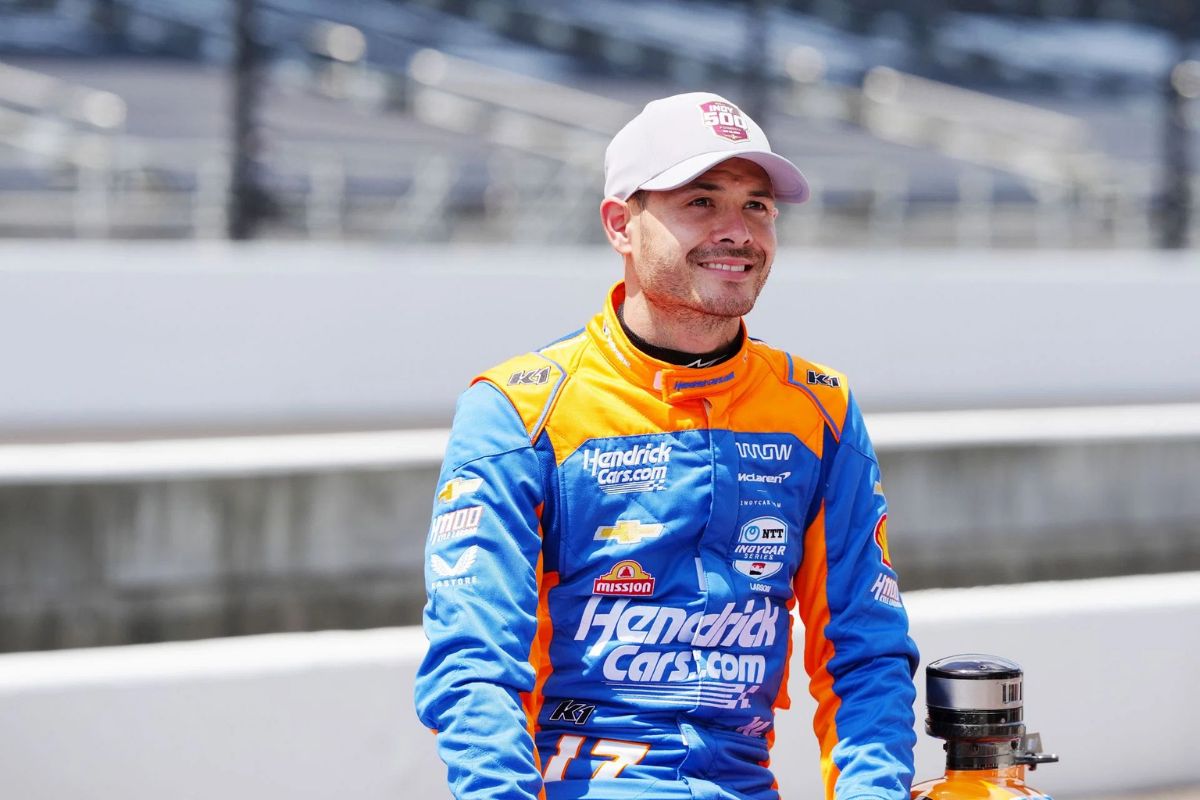Kyle Larson’s Rookie Flashback: Kyle Larson‘s recent reflections on his rookie season, triggered by the weather-related delays at Michigan, reveal a deeper narrative about the evolution of NASCAR’s racing environment. The pronounced contrast between the structured, predictable start times of 2014 and the turbulent nature of today’s race scheduling raises questions about how such changes impact driver performance and team dynamics. As Larson reminisces about the clarity and engagement of his early career, one must consider: what lessons can be drawn from these nostalgic moments, and how might they inform the current landscape of NASCAR?
Key Highlights
- Kyle Larson reminisced about his rookie season’s structured race schedules, contrasting them with the unpredictability of modern NASCAR events.
- The FireKeepers Casino 400 faced significant weather delays, echoing Larson’s experiences with race postponements during his early career.
- Larson’s 2014 season included 17 top-10 finishes, highlighting his emerging talent amidst the challenges of race day disruptions.
- Bubba Wallace’s strategic performance during the delayed race showed the adaptability required in the NASCAR environment.
- Historical weather disruptions at Michigan raise concerns about future scheduling and fan engagement, reflecting Larson’s nostalgic views on race day experiences.
Kyle Larson Reflects on Rookie Season Start Times
In reminiscing about his rookie season, Kyle Larson highlighted a notable aspect of his early NASCAR experience: the race start times. Reflecting on the rhythmic cadence of a 1 p.m. start, Larson expressed a longing for the simplicity and predictability that characterized those early afternoons. The 2014 season, where he piloted the No. 42 Chevrolet for Chip Ganassi Racing, was marked by a series of challenges and victories, including 17 top-10 finishes that showed his rising talent.
“I miss the 1pm start times from my rookie season…. 😔” – (larson)
I miss the 1pm start times from my rookie season…. 😔
— Kyle Larson (@KyleLarsonRacin) August 19, 2024
The nostalgia for earlier start times is representative of a broader sentiment within the racing community, where time management plays a vital role in a driver’s performance and mental preparation. Larson’s rookie year afforded him the luxury of daylight racing, which allowed for ideal visibility and fostered a connection with fans who could engage with the sport during the afternoon.
The predictability of these start times provided a structured environment that is often lost in today’s schedule, which can be influenced by many factors, including weather delays and television contracts.
Race Delay and Postponement of FireKeepers Casino 400
The unpredictability of race start times has become a notable challenge for drivers and teams, as evidenced by the recent delays during the FireKeepers Casino 400. Originally scheduled for 2:30 PM ET, the race faced considerable weather-related interruptions, ultimately pushing the green flag to 4:55 PM ET. This delay tested the patience of the teams and impacted the drivers’ mental preparedness, as they went through the emotional terrain of anticipation and uncertainty.
As the race commenced, the initial excitement was noticeable, but it quickly turned into a sense of déjà vu when NASCAR decided to postpone the event after just 51 laps, rescheduling it for the following day at 11 AM ET.
In racing, the ability to adapt to sudden changes is essential. Team Penske’s Ryan Blaney capitalized on the situation, winning the opening stage while others reassessed their strategies. The combination of delays and unforeseen circumstances highlights the relentless nature of NASCAR, reminding teams that resilience is as important as speed on the track.
Bubba Wallace’s Performance and Positioning
Exhibiting remarkable skill and tactical insight, Bubba Wallace made a bold move to seize the lead during a vital moment of the race at Michigan. As Kyle Larson and Denny Hamlin dominated the early stages, with Larson leading the initial 34 laps, Wallace displayed his skill on lap 35. Veering to the inside of the track, he executed a well-timed drive that allowed him to overtake both drivers, propelling his No. 23 Camry to the forefront of the race.
Wallace’s performance was not merely a product of speed; it was a calculated strategy that involved understanding the dynamics of the pack. His ability to maintain an exhilarating speed of 199 mph while driving the intricacies of racecraft showed his growing proficiency on the track. The reaction from NASCAR on NBC represented the moment.
“Bubba Wallace PASSED THEM BOTH. He rockets to the race lead past Denny Hamlin and Kyle Larson.” – (NASCAR on NBC)
As the race continued, Wallace’s teammate Tyler Reddick trailed Larson in fourth, while Larson ultimately fell to seventh when the race was called, further emphasizing Wallace’s tactical advantage in the race’s critical moments.
Bubba Wallace PASSED THEM BOTH.
He rockets to the race lead past Denny Hamlin and Kyle Larson. #NASCAR pic.twitter.com/oqYNDJTNsO
— NASCAR on NBC (@NASCARonNBC) August 18, 2024
Historical Context and Future Implications
History reveals that the challenges faced during the recent race at Michigan International Speedway are not unique; they echo a pattern of weather-related disruptions in the NASCAR calendar. The trend of rain delays, particularly at this iconic two-mile oval track, invites a deeper examination of the implications for the sport’s scheduling and its stakeholders. Significantly, the 2023 and 2024 races have seen postponements to Monday, emphasizing a recurring issue that teams and fans must handle.
This historical context raises questions about the future. As climate patterns continue to change, NASCAR may need to adapt its scheduling strategies to minimize disruptions. The league’s reliance on outdoor venues makes it particularly vulnerable to weather fluctuations, which could impact race day experiences, team logistics, and fan attendance.
| Year | Race Outcome |
|---|---|
| 2023 | Postponed; 74 laps completed, Chris Buescher victorious on Monday |
| 2024 | Similar delay expected; implications for team preparations and fan engagement |
| Future Strategies | Consideration of alternative scheduling or venues to mitigate weather disruptions |
News in Brief: Kyle Larson’s Rookie Flashback
Kyle Larson’s reflections on his rookie season show the vivid contrast between the structured environment of early racing and the unpredictable nature of contemporary NASCAR. The recent race delays at Michigan serve as a reminder of the emotional and logistical challenges teams face in adapting to evolving circumstances.
As the sport continues to transform, maintaining a balance between fan engagement and operational flexibility will be essential for preserving the essence of racing while managing future uncertainties.
ALSO READ: Kyle Larson’s 25K Dollars Win at Tulare Thunderbowl Raceway Extends His ‘6-for-6’ Sprint Car Streak




